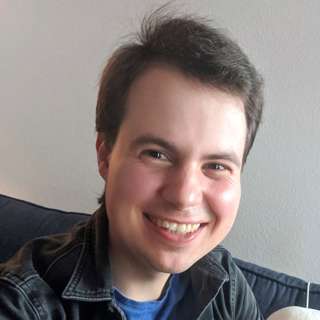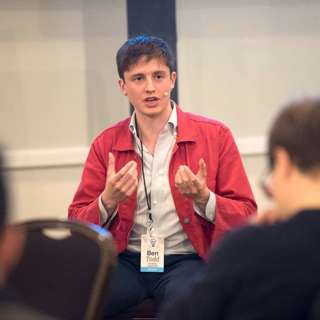
#71 - Benjamin Todd on the key ideas of 80,000 Hours
The 80,000 Hours Podcast is about “the world’s most pressing problems and how you can use your career to solve them”, and in this episode we tackle that question in the most direct way possible. Last year we published a summary of all our key ideas, which links to many of our other articles, and which we are aiming to keep updated as our opinions shift. All of us added something to it, but the single biggest contributor was our CEO and today's guest, Ben Todd, who founded 80,000 Hours along with Will MacAskill back in 2012. This key ideas page is the most read on the site. By itself it can teach you a large fraction of the most important things we've discovered since we started investigating high impact careers. • Links to learn more, summary and full transcript. But it's perhaps more accurate to think of it as a mini-book, as it weighs in at over 20,000 words. Fortunately it's designed to be highly modular and it's easy to work through it over multiple sessions, scanning over the articles it links to on each topic. Perhaps though, you'd prefer to absorb our most essential ideas in conversation form, in which case this episode is for you. If you want to have a big impact with your career, and you say you're only going to read one article from us, we recommend you read our key ideas page. And likewise, if you're only going to listen to one of our podcast episodes, it should be this one. We have fun and set a strong pace, running through: • Common misunderstandings of our advice • A high level overview of what 80,000 Hours generally recommends • Our key moral positions • What are the most pressing problems to work on and why? • Which careers effectively contribute to solving those problems? • Central aspects of career strategy like how to weigh up career capital, personal fit, and exploration • As well as plenty more. One benefit of this podcast over the article is that we can more easily communicate uncertainty, and dive into the things we're least sure about, or didn’t yet cover within the article. Note though that our what’s in the article is more precisely stated, our advice is going to keep shifting, and we're aiming to keep the key ideas page current as our thinking evolves over time. This episode was recorded in November 2019, so if you notice a conflict between the page and this episode in the future, go with the page! Get the episode by subscribing: type 80,000 Hours into your podcasting app. Producer: Keiran Harris. Audio mastering: Ben Cordell. Transcriptions: Zakee Ulhaq.
2 Mars 20202h 57min
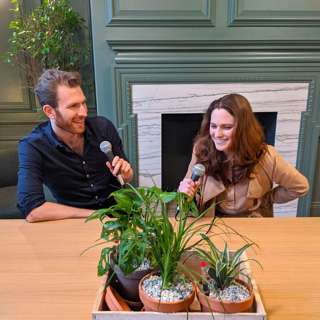
Arden & Rob on demandingness, work-life balance & injustice (80k team chat #1)
Today's bonus episode of the podcast is a quick conversation between me and my fellow 80,000 Hours researcher Arden Koehler about a few topics, including the demandingness of morality, work-life balance, and emotional reactions to injustice. Arden is about to graduate with a philosophy PhD from New York University, so naturally we dive right into some challenging implications of utilitarian philosophy and how it might be applied to real life. Issues we talk about include: • If you’re not going to be completely moral, should you try being a bit more ethical, or give up? • Should you feel angry if you see an injustice, and if so, why? • How much should we ask people to live frugally? So far the feedback on the post-episode chats that we've done have been positive, so we thought we'd go ahead and try out this freestanding one. But fair warning: it's among the more difficult episodes to follow, and probably not the best one to listen to first, as you'll benefit from having more context! If you'd like to listen to more of Arden you can find her in episode 67, David Chalmers on the nature and ethics of consciousness, or episode 66, Peter Singer on being provocative, EA, and how his moral views have changed. Here's more information on some of the issues we touch on: • Consequentialism on Wikipedia • Appropriate dispositions on the Stanford Encyclopaedia of Philosophy • Demandingness objection on Wikipedia • And a paper on epistemic normativity. ——— I mention the call for papers of the Academic Workshop on Global Priorities in the introduction — you can learn more here. And finally, Toby Ord — one of our founding Trustees and a Senior Research Fellow in Philosophy at Oxford University — has his new book The Precipice: Existential Risk and the Future of Humanity coming out next week. I've read it and very much enjoyed it. Find out where you can pre-order it here. We'll have an interview with him coming up soon.
25 Feb 202044min
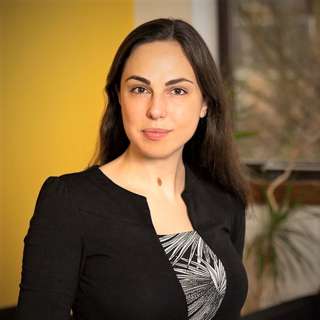
#70 - Dr Cassidy Nelson on the 12 best ways to stop the next pandemic (and limit nCoV)
nCoV is alarming governments and citizens around the world. It has killed more than 1,000 people, brought the Chinese economy to a standstill, and continues to show up in more and more places. But bad though it is, it's much closer to a warning shot than a worst case scenario. The next emerging infectious disease could easily be more contagious, more fatal, or both. Despite improvements in the last few decades, humanity is still not nearly prepared enough to contain new diseases. We identify them too slowly. We can't do enough to reduce their spread. And we lack vaccines or drugs treatments for at least a year, if they ever arrive at all. • Links to learn more, summary and full transcript. This is a precarious situation, especially with advances in biotechnology increasing our ability to modify viruses and bacteria as we like. In today's episode, Cassidy Nelson, a medical doctor and research scholar at Oxford University's Future of Humanity Institute, explains 12 things her research group think urgently need to happen if we're to keep the risk at acceptable levels. The ideas are: Science 1. Roll out genetic sequencing tests that lets you test someone for all known and unknown pathogens in one go. 2. Fund research into faster ‘platform’ methods for going from pathogen to vaccine, perhaps using innovation prizes. 3. Fund R&D into broad-spectrum drugs, especially antivirals, similar to how we have generic antibiotics against multiple types of bacteria. Response 4. Develop a national plan for responding to a severe pandemic, regardless of the cause. Have a backup plan for when things are so bad the normal processes have stopped working entirely. 5. Rigorously evaluate in what situations travel bans are warranted. (They're more often counterproductive.) 6. Coax countries into more rapidly sharing their medical data, so that during an outbreak the disease can be understood and countermeasures deployed as quickly as possible. 7. Set up genetic surveillance in hospitals, public transport and elsewhere, to detect new pathogens before an outbreak — or even before patients develop symptoms. 8. Run regular tabletop exercises within governments to simulate how a pandemic response would play out. Oversight 9. Mandate disclosure of accidents in the biosafety labs which handle the most dangerous pathogens. 10. Figure out how to govern DNA synthesis businesses, to make it harder to mail order the DNA of a dangerous pathogen. 11. Require full cost-benefit analysis of 'dual-use' research projects that can generate global risks. 12. And finally, to maintain momentum, it's necessary to clearly assign responsibility for the above to particular individuals and organisations. These advances can be pursued by politicians and public servants, as well as academics, entrepreneurs and doctors, opening the door for many listeners to pitch in to help solve this incredibly pressing problem. In the episode Rob and Cassidy also talk about: • How Cassidy went from clinical medicine to a PhD studying novel pathogens with pandemic potential. • The pros, and significant cons, of travel restrictions. • Whether the same policies work for natural and anthropogenic pandemics. • Ways listeners can pursue a career in biosecurity. • Where we stand with nCoV as of today.Chapters:Rob’s intro (00:00:00)The interview begins (00:03:27)Where we stand with nCov today (00:07:24)Policy idea 1: A drastic change to diagnostic testing (00:34:58)Policy idea 2: Vaccine platforms (00:47:08)Policy idea 3: Broad-spectrum therapeutics (00:54:48)Policy idea 4: Develop a national plan for responding to a severe pandemic, regardless of the cause (01:02:15)Policy idea 5: A different approach to travel bans (01:15:59)Policy idea 6: Data sharing (01:16:48)Policy idea 7: Prevention (01:24:45)Policy idea 8: transparency around lab accidents (01:33:58)Policy idea 9: DNA synthesis screening (01:39:22)Policy idea 10: Dual Use Research oversight (01:48:47)Policy idea 11: Pandemic tabletop exercises (02:00:00)Policy idea 12: Coordination (02:12:20) Get this episode by subscribing: type 80,000 Hours into your podcasting app. Or read the linked transcript. Producer: Keiran Harris. Transcriptions: Zakee Ulhaq.
13 Feb 20202h 26min
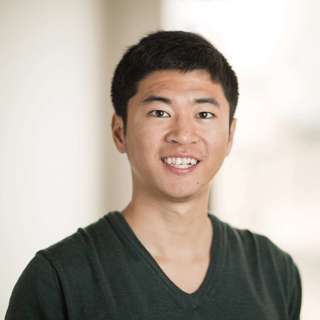
#69 – Jeffrey Ding on China, its AI dream, and what we get wrong about both
The State Council of China's 2017 AI plan was the starting point of China’s AI planning; China’s approach to AI is defined by its top-down and monolithic nature; China is winning the AI arms race; and there is little to no discussion of issues of AI ethics and safety in China. How many of these ideas have you heard? In his paper Deciphering China's AI Dream, today's guest, PhD student Jeff Ding, outlines why he believes none of these claims are true. • Links to learn more, summary and full transcript. • What’s the best charity to donate to? He first places China’s new AI strategy in the context of its past science and technology plans, as well as other countries’ AI plans. What is China actually doing in the space of AI development? Jeff emphasises that China's AI strategy did not appear out of nowhere with the 2017 state council AI development plan, which attracted a lot of overseas attention. Rather that was just another step forward in a long trajectory of increasing focus on science and technology. It's connected with a plan to develop an 'Internet of Things', and linked to a history of strategic planning for technology in areas like aerospace and biotechnology. And it was not just the central government that was moving in this space; companies were already pushing forward in AI development, and local level governments already had their own AI plans. You could argue that the central government was following their lead in AI more than the reverse. What are the different levers that China is pulling to try to spur AI development? Here, Jeff wanted to challenge the myth that China's AI development plan is based on a monolithic central plan requiring people to develop AI. In fact, bureaucratic agencies, companies, academic labs, and local governments each set up their own strategies, which sometimes conflict with the central government. Are China's AI capabilities especially impressive? In the paper Jeff develops a new index to measure and compare the US and China's progress in AI. Jeff’s AI Potential Index — which incorporates trends and capabilities in data, hardware, research and talent, and the commercial AI ecosystem — indicates China’s AI capabilities are about half those of America. His measure, though imperfect, dispels the notion that China's AI capabilities have surpassed the US or make it the world's leading AI power. Following that 2017 plan, a lot of Western observers thought that to have a good national AI strategy we'd need to figure out how to play catch-up with China. Yet Chinese strategic thinkers and writers at the time actually thought that they were behind — because the Obama administration had issued a series of three white papers in 2016. Finally, Jeff turns to the potential consequences of China’s AI dream for issues of national security, economic development, AI safety and social governance. He claims that, despite the widespread belief to the contrary, substantive discussions about AI safety and ethics are indeed emerging in China. For instance, a new book from Tencent’s Research Institute is proactive in calling for stronger awareness of AI safety issues. In today’s episode, Rob and Jeff go through this widely-discussed report, and also cover: • The best analogies for thinking about the growing influence of AI • How do prominent Chinese figures think about AI? • Coordination with China • China’s social credit system • Suggestions for people who want to become professional China specialists • And more. Chapters:Rob’s intro (00:00:00)The interview begins (00:01:02)Deciphering China’s AI Dream (00:04:17)Analogies for thinking about AI (00:12:30)How do prominent Chinese figures think about AI? (00:16:15)Cultural cliches in the West and China (00:18:59)Coordination with China on AI (00:24:03)Private companies vs. government research (00:28:55)Compute (00:31:58)China’s social credit system (00:41:26)Relationship between China and other countries beyond AI (00:43:51)Careers advice (00:54:40)Jeffrey’s talk at EAG (01:16:01)Rob’s outro (01:37:12) Producer: Keiran Harris.Audio mastering: Ben Cordell. Transcriptions: Zakee Ulhaq.
6 Feb 20201h 37min
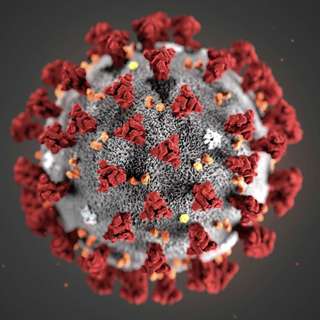
Rob & Howie on what we do and don't know about 2019-nCoV
Two 80,000 Hours researchers, Robert Wiblin and Howie Lempel, record an experimental bonus episode about the new 2019-nCoV virus.See this list of resources, including many discussed in the episode, to learn more.In the 1h15m conversation we cover:• What is it? • How many people have it? • How contagious is it? • What fraction of people who contract it die?• How likely is it to spread out of control?• What's the range of plausible fatalities worldwide?• How does it compare to other epidemics?• What don't we know and why? • What actions should listeners take, if any?• How should the complexities of the above be communicated by public health professionals?Here's a link to the hygiene advice from Laurie Garrett mentioned in the episode.Recorded 2 Feb 2020.The 80,000 Hours Podcast is produced by Keiran Harris.
3 Feb 20201h 18min
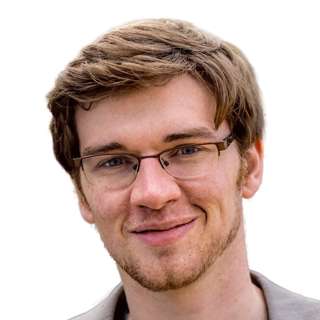
#68 - Will MacAskill on the paralysis argument, whether we're at the hinge of history, & his new priorities
You’re given a box with a set of dice in it. If you roll an even number, a person's life is saved. If you roll an odd number, someone else will die. Each time you shake the box you get $10. Should you do it? A committed consequentialist might say, "Sure! Free money!" But most will think it obvious that you should say no. You've only gotten a tiny benefit, in exchange for moral responsibility over whether other people live or die. And yet, according to today’s return guest, philosophy Prof Will MacAskill, in a real sense we’re shaking this box every time we leave the house, and those who think shaking the box is wrong should probably also be shutting themselves indoors and minimising their interactions with others. • Links to learn more, summary and full transcript. • Job opportunities at the Global Priorities Institute. To see this, imagine you’re deciding whether to redeem a coupon for a free movie. If you go, you’ll need to drive to the cinema. By affecting traffic throughout the city, you’ll have slightly impacted the schedules of thousands or tens of thousands of people. The average life is about 30,000 days, and over the course of a life the average person will have about two children. So — if you’ve impacted at least 7,500 days — then, statistically speaking, you've probably influenced the exact timing of a conception event. With 200 million sperm in the running each time, changing the moment of copulation, even by a fraction of a second, will almost certainly mean you've changed the identity of a future person. That different child will now impact all sorts of things as they go about their life, including future conception events. And then those new people will impact further future conceptions events, and so on. After 100 or maybe 200 years, basically everybody alive will be a different person because you went to the movies. As a result, you’ll have changed when many people die. Take car crashes as one example: about 1.3% of people die in car crashes. Over that century, as the identities of everyone change as a result of your action, many of the 'new' people will cause car crashes that wouldn't have occurred in their absence, including crashes that prematurely kill people alive today. Of course, in expectation, exactly the same number of people will have been saved from car crashes, and will die later than they would have otherwise. So, if you go for this drive, you’ll save hundreds of people from premature death, and cause the early death of an equal number of others. But you’ll get to see a free movie, worth $10. Should you do it? This setup forms the basis of ‘the paralysis argument’, explored in one of Will’s recent papers. Because most 'non-consequentialists' endorse an act/omission distinction… post truncated due to character limit, finish reading the full explanation here. So what's the best way to fix this strange conclusion? We discuss a few options, but the most promising might bring people a lot closer to full consequentialism than is immediately apparent. In this episode Will and I also cover: • Are, or are we not, living in the most influential time in history? • The culture of the effective altruism community • Will's new lower estimate of the risk of human extinction • Why Will is now less focused on AI • The differences between Americans and Brits • Why feeling guilty about characteristics you were born with is crazy • And plenty more. Chapters:Rob’s intro (00:00:00)The interview begins (00:04:03)The paralysis argument (00:15:42)The case for strong longtermism (00:55:21)Longtermism for risk-averse altruists (00:58:01)Are we living in the most influential time in history? (01:14:37)The risk of human extinction in the next hundred years (02:15:20)Implications for the effective altruism community (02:50:03)Culture of the effective altruism community (03:06:28)Producer: Keiran Harris. Audio mastering: Ben Cordell. Transcriptions: Zakee Ulhaq.
24 Jan 20203h 25min
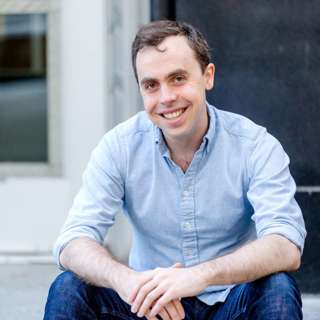
#44 Classic episode - Paul Christiano on finding real solutions to the AI alignment problem
Rebroadcast: this episode was originally released in October 2018. Paul Christiano is one of the smartest people I know. After our first session produced such great material, we decided to do a second recording, resulting in our longest interview so far. While challenging at times I can strongly recommend listening — Paul works on AI himself and has a very unusually thought through view of how it will change the world. This is now the top resource I'm going to refer people to if they're interested in positively shaping the development of AI, and want to understand the problem better. Even though I'm familiar with Paul's writing I felt I was learning a great deal and am now in a better position to make a difference to the world. A few of the topics we cover are:• Why Paul expects AI to transform the world gradually rather than explosively and what that would look like • Several concrete methods OpenAI is trying to develop to ensure AI systems do what we want even if they become more competent than us • Why AI systems will probably be granted legal and property rights • How an advanced AI that doesn't share human goals could still have moral value • Why machine learning might take over science research from humans before it can do most other tasks • Which decade we should expect human labour to become obsolete, and how this should affect your savings plan. • Links to learn more, summary and full transcript. • Rohin Shah's AI alignment newsletter. Here's a situation we all regularly confront: you want to answer a difficult question, but aren't quite smart or informed enough to figure it out for yourself. The good news is you have access to experts who *are* smart enough to figure it out. The bad news is that they disagree. If given plenty of time — and enough arguments, counterarguments and counter-counter-arguments between all the experts — should you eventually be able to figure out which is correct? What if one expert were deliberately trying to mislead you? And should the expert with the correct view just tell the whole truth, or will competition force them to throw in persuasive lies in order to have a chance of winning you over? In other words: does 'debate', in principle, lead to truth? According to Paul Christiano — researcher at the machine learning research lab OpenAI and legendary thinker in the effective altruism and rationality communities — this question is of more than mere philosophical interest. That's because 'debate' is a promising method of keeping artificial intelligence aligned with human goals, even if it becomes much more intelligent and sophisticated than we are. It's a method OpenAI is actively trying to develop, because in the long-term it wants to train AI systems to make decisions that are too complex for any human to grasp, but without the risks that arise from a complete loss of human oversight. If AI-1 is free to choose any line of argument in order to attack the ideas of AI-2, and AI-2 always seems to successfully defend them, it suggests that every possible line of argument would have been unsuccessful. But does that mean that the ideas of AI-2 were actually right? It would be nice if the optimal strategy in debate were to be completely honest, provide good arguments, and respond to counterarguments in a valid way. But we don't know that's the case. The 80,000 Hours Podcast is produced by Keiran Harris.
15 Jan 20203h 51min
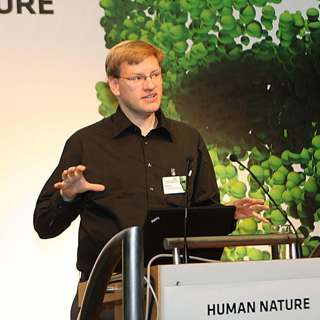
#33 Classic episode - Anders Sandberg on cryonics, solar flares, and the annual odds of nuclear war
Rebroadcast: this episode was originally released in May 2018. Joseph Stalin had a life-extension program dedicated to making himself immortal. What if he had succeeded? According to Bryan Caplan in episode #32, there’s an 80% chance that Stalin would still be ruling Russia today. Today’s guest disagrees. Like Stalin he has eyes for his own immortality - including an insurance plan that will cover the cost of cryogenically freezing himself after he dies - and thinks the technology to achieve it might be around the corner. Fortunately for humanity though, that guest is probably one of the nicest people on the planet: Dr Anders Sandberg of Oxford University. Full transcript of the conversation, summary, and links to learn more. The potential availability of technology to delay or even stop ageing means this disagreement matters, so he has been trying to model what would really happen if both the very best and the very worst people in the world could live forever - among many other questions. Anders, who studies low-probability high-stakes risks and the impact of technological change at the Future of Humanity Institute, is the first guest to appear twice on the 80,000 Hours Podcast and might just be the most interesting academic at Oxford. His research interests include more or less everything, and bucking the academic trend towards intense specialization has earned him a devoted fan base. Last time we asked him why we don’t see aliens, and how to most efficiently colonise the universe. In today’s episode we ask about Anders’ other recent papers, including: • Is it worth the money to freeze your body after death in the hope of future revival, like Anders has done? • How much is our perception of the risk of nuclear war biased by the fact that we wouldn’t be alive to think about it had one happened? • If biomedical research lets us slow down ageing would culture stagnate under the crushing weight of centenarians? • What long-shot drugs can people take in their 70s to stave off death? • Can science extend human (waking) life by cutting our need to sleep? • How bad would it be if a solar flare took down the electricity grid? Could it happen? • If you’re a scientist and you discover something exciting but dangerous, when should you keep it a secret and when should you share it? • Will lifelike robots make us more inclined to dehumanise one another? Get this episode by subscribing to our podcast on the world’s most pressing problems and how to solve them: search for '80,000 Hours' in your podcasting app. The 80,000 Hours Podcast is produced by Keiran Harris.
8 Jan 20201h 25min
